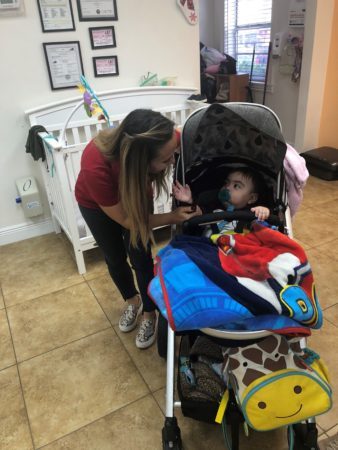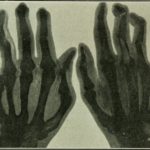Home health care is a growing trend among Americans. Even though a lot of families aren’t aware of the benefits of home health care yet, awareness is spreading. To many people, home health care might sound questionable – like some sort of rising trend among people who like to challenge conventional medicine, but this is far from being true. The truth about home care is that only qualified professionals are legally permitted to work in the field. Home health care experts receive the same training to work in their respective professions as hospital staff would undergo.
One of the fastest growing sectors in home health partitioning is elderly care, but there’s no person too young or old to receive health care at home. Pediatric home health care can help countless families care for the health care needs of their children in the comfort of their own homes.
How Fast is Home Health Care Growing?
Home health care is growing in popularity at a rapid pace. According to the US Bureau of Labor Statistics, the outlook for growth in home health care is that it’s on the rise. The demand for home health aides is predicted to grow by 36% between 2018 and 2028 alone.
This growth is largely contributed to the growing number of elderly people in need of basic care and assistance from health aides. While it represents the fact that home health care is growing, the rising popularity of other forms of home care, such and nursing and therapy, isn’t factored in to this statistic.
Home Health Care is More than Health Aides
Home health care is about more than hiring aides to assist patients that face disability challenges. Pediatric home health care specifically can include various forms of therapy and assistance with a broad range of medical disorders – not all of which will render a child immobile.
To some extent, the growing popularity of home health care is reminiscent of the old days, when doctors routinely made house visits to treat patients. Patient visitation makes sense, seeing as a lot of patients suffer from medical problems that make visiting a medical practice challenging.
Receiving as much care as possible at home is also more convenient and accessible for many patients. To get medical assistance at home allows patients to stay comfortable in a relaxed environment. When pediatric home care serves to assist patients during the recovery period after surgery, it allows for patients to recover out of hospital, away from potential pathogens that exist in a hospital environment.
Professional Medical Treatment
The prospect of home health during the recovery period after surgery can seem attractive, but not all patients are eligible. If you’re interested in home health care for your child or loved one, you’ll still need to consult with your doctor about whether it’s a viable option.
It goes without saying that high-risk patients will need to remain in hospital until a physician clears them as stable enough for recovery at home. In this way, your home health care provider and doctor will need to work together to establish the best care for your child.
Pediatric Home Health Care Options
As previously stated, some children might be eligible for pediatric home health care during recovery post-surgery. However, home care doesn’t always serve as an alternative to hospital recovery. Some pediatric home health care options are aimed at providing short sessions of in-home treatment rather than extensive, chronic care.
Below is a list of pediatric home health care options for different conditions.
Infant Bilirubin Therapy
Infant jaundice is a common problem among newborns and mothers with incompatible blood types. Most often, it’s due to an ABO incompatibly, where the mother lacks an antigen present in the blood of the infant. Treatment for infant jaundice involves phototherapy – which means it’s treated by exposing the child to specially developed lights.
Medication Infusion Therapy
Certain medications must be administered intravenously through a needle, or through the use of a catheter. Some conditions that commonly warrant medication infusion therapy include cancers, immune deficiencies and infections that are unresponsive to oral antibiotic treatment.
Asthma Nursing Care
Although some asthma sufferers can live relatively normal lives, a lot of younger sufferers are hardest hit by the condition. Some children are at high risk for asthma-related fatalities. In such instances, physicians might prescribe specialized asthma nursing care, which can be administered at home.
Specialized Therapy
A lot of children require some form of physical-, occupational- or speech therapy. When working with a pediatric home health care provider, appointments can be made for home treatment.
The need for therapy isn’t an indication of a child’s intellectual abilities, some children simply require special care due to learning disorders, physical challenges, autism or even psychological problems, such as high levels of anxiety. Qualified, experienced health care practitioners display the necessary sense of patience, understanding and competence to provide the highest quality of care possible.
Appointments can be made according to your personal schedule for therapy on an ongoing basis. For children who lack confidence, the familiar home environment can help set them at ease, which could make therapy sessions more effective.
Enteral Feeding
For disabled children who suffer from mental subnormalities, enteral feeding (also called tube feeding) is often required. This involves feeding through a tube that releases food directly into the stomach or intestinal tract. It’s not practical to travel daily for feeding, so home health care is the best option. Nurses and medical staff will also be able to assist with other health care requirements.
Wound Care
 In the home health care setting, wound care most often involves the ongoing treatment of problematic persistent wounds. Complex wounds are often indicative of underlying medical complications such as diabetes or infection, but surgical wounds can also qualify. Your pediatric home health care provider will work with your doctor in wound treatment.
In the home health care setting, wound care most often involves the ongoing treatment of problematic persistent wounds. Complex wounds are often indicative of underlying medical complications such as diabetes or infection, but surgical wounds can also qualify. Your pediatric home health care provider will work with your doctor in wound treatment.
Home wound care nurses are experienced in the treatment of complex wounds. Through proper communication, evaluation and cooperation, your nurse can work together with your doctor by recommending treatment plans, which you can discuss with your doctor.
Although a lot of home wound care can be performed by a loved one, the help of a medical professional can be crucial for recovery. Complications can present during home wound care – the guidance and expertise of a wound care nurse can help patients overcome challenges through expert care and recommendations for improved recovery rates.
Can Your Child Benefit from Pediatric Home Health Care?
Pediatric home health care can encompass more than the medical assistance listed above. There are many medical conditions where home care can greatly improve the quality of life for both the pediatric patient and their family. Children suffering from respiratory disorders, orthopedic ailments, infection disorders and even cardiovascular complications can all benefit from receiving home care as part of a medical care plan.
If you’re interested in pediatric home health care, but you’re not sure if your child is eligible, talk to a home health care provider about your options. Advantis Home Care offers home health care to both pediatric and geriatric patients in Miami. Our staff are knowledgeable on home health care treatment options and can advise you regarding what options are available for your child. We’ll work with your existing medical practitioners to help incorporate home care into your child’s health care plan.
Is Pediatric Home Health Care Affordable?
Home health care might seem like an extravagant luxury, but this isn’t the case. In many cases, treatment at home can be more affordable than hospitalization or medical care administered in a practice.
Many children who require pediatric home health care qualify for cover from Medicaid. In almost all states, Medicaid will pay for pediatric home health care if the treatment is deemed necessary by a physician. Medicaid will also pay out for occupational- and speech therapy in some states, but not all.
Unfortunately, financial assistance from Medicaid isn’t always enough to cover all the expenses involved in home health care. When Medicaid payments aren’t sufficient, you can discuss payment options with a local home health care provider. Private health insurance providers are often willing to pay for home health care – especially when it proves as a cost-effective alternative to hospitalization.
Home care often costs less than alternatives, making it a convenient, personalized and affordable option for many American families.










